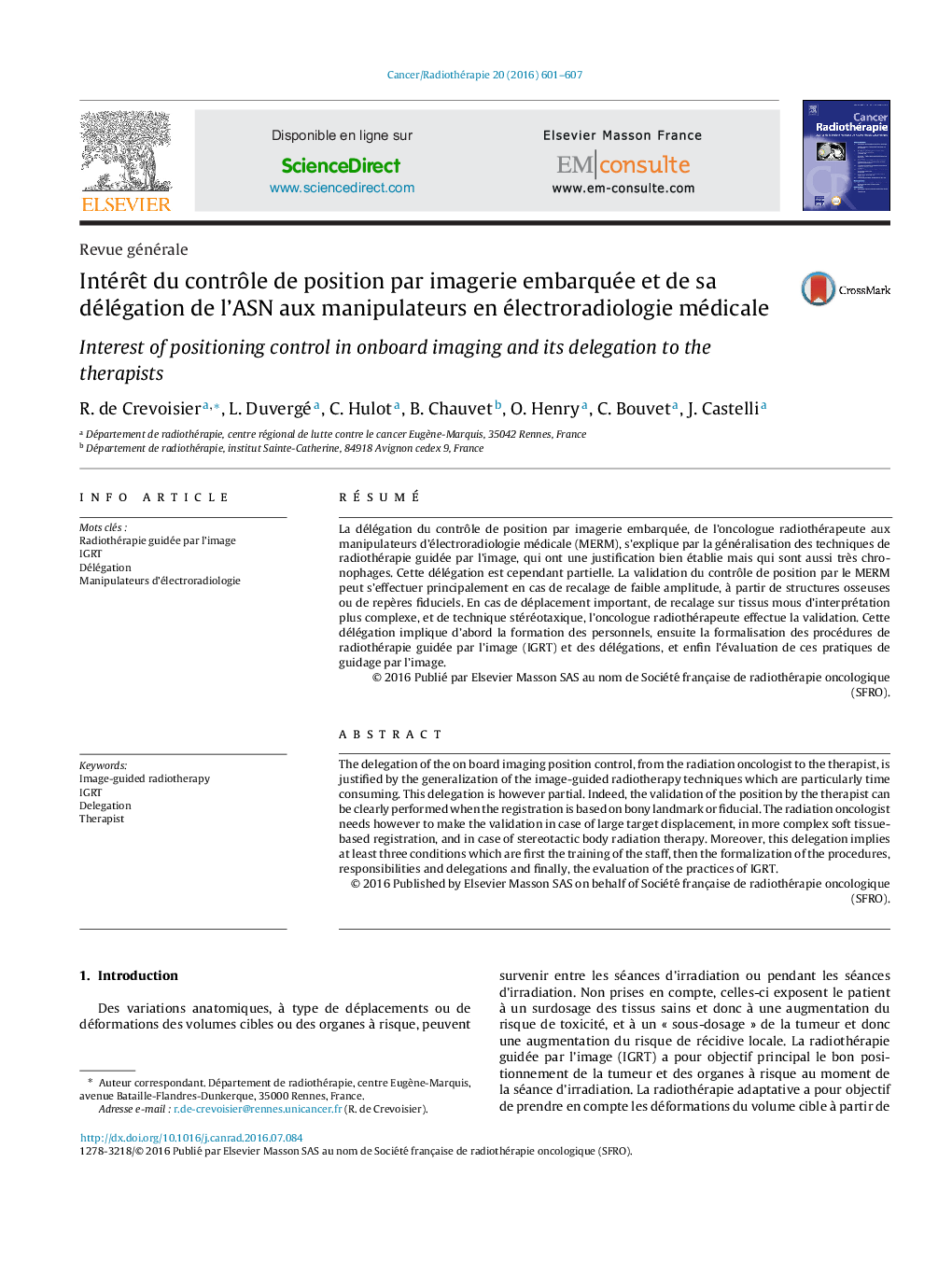| Article ID | Journal | Published Year | Pages | File Type |
|---|---|---|---|---|
| 5525986 | Cancer/Radiothérapie | 2016 | 7 Pages |
RésuméLa délégation du contrôle de position par imagerie embarquée, de l'oncologue radiothérapeute aux manipulateurs d'électroradiologie médicale (MERM), s'explique par la généralisation des techniques de radiothérapie guidée par l'image, qui ont une justification bien établie mais qui sont aussi très chronophages. Cette délégation est cependant partielle. La validation du contrôle de position par le MERM peut s'effectuer principalement en cas de recalage de faible amplitude, à partir de structures osseuses ou de repères fiduciels. En cas de déplacement important, de recalage sur tissus mous d'interprétation plus complexe, et de technique stéréotaxique, l'oncologue radiothérapeute effectue la validation. Cette délégation implique d'abord la formation des personnels, ensuite la formalisation des procédures de radiothérapie guidée par l'image (IGRT) et des délégations, et enfin l'évaluation de ces pratiques de guidage par l'image.
The delegation of the on board imaging position control, from the radiation oncologist to the therapist, is justified by the generalization of the image-guided radiotherapy techniques which are particularly time consuming. This delegation is however partial. Indeed, the validation of the position by the therapist can be clearly performed when the registration is based on bony landmark or fiducial. The radiation oncologist needs however to make the validation in case of large target displacement, in more complex soft tissue-based registration, and in case of stereotactic body radiation therapy. Moreover, this delegation implies at least three conditions which are first the training of the staff, then the formalization of the procedures, responsibilities and delegations and finally, the evaluation of the practices of IGRT.
